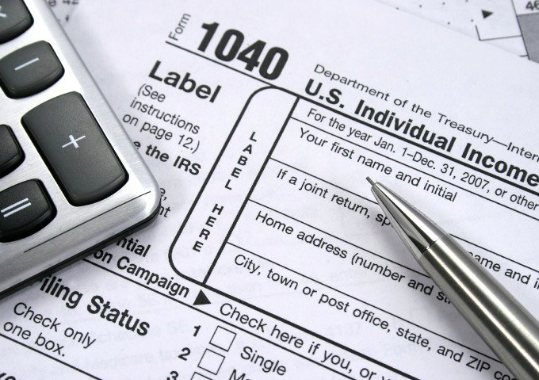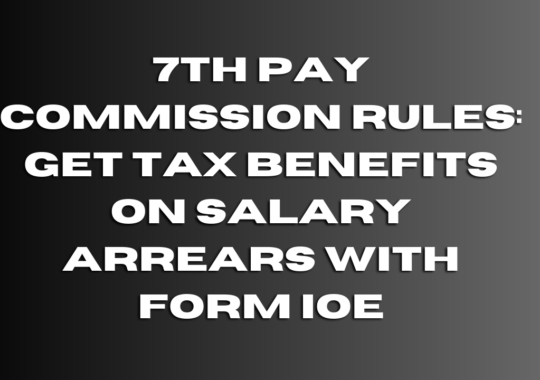Futures and options trading are popular investment strategies that involve trading contracts that give the holder the right to buy or sell an underlying asset at a predetermined price and date in the future. These financial instruments allow traders to speculate on price movements, hedge against potential risks, and potentially generate profits. However, it’s important to understand the tax obligations associated with futures and options trading to ensure proper compliance.
Understanding Tax Obligations for Futures and Options Trading
When it comes to tax obligations for futures and options trading, there are several key considerations to keep in mind. Here are some important points to understand:
- Tax Treatment: In many jurisdictions, including the United States, gains and losses from futures and options trading are generally treated as capital gains or losses for tax purposes. The specific tax treatment may depend on factors such as the holding period of the contracts and the trader’s tax status (e.g., individual, business entity).
- Short-term vs. Long-term Capital Gains: The holding period of futures and options contracts determines whether any gains or losses are classified as short-term or long-term. If the contracts are held for one year or less, resulting gains or losses are typically treated as short-term capital gains or losses, subject to ordinary income tax rates. Contracts held for more than one year may qualify for long-term capital gains treatment, which often comes with preferential tax rates.
- Reporting Requirements: Traders engaging in futures and options trading are generally required to report their gains and losses on their tax returns. Specific forms or schedules, such as Schedule D in the United States, may be necessary to report these transactions. It’s crucial to accurately report all transactions and follow the reporting requirements of the relevant tax authorities.
- Deductible Expenses: Traders may be eligible to deduct certain expenses related to their futures and options trading activities, such as brokerage fees, data fees, and software costs. It’s important to keep track of these expenses and consult with a tax professional to determine which expenses are deductible.
Common Mistakes in Tax Filing for Futures and Options
When it comes to tax filing for futures and options trading, certain mistakes can occur, leading to incorrect reporting of profits and losses. These mistakes can result in inaccurate tax liabilities and potential issues with tax authorities. Here are some common errors to be aware of:
Misclassifying Income:
One common mistake is misclassifying income from futures and options trading. It’s important to correctly identify whether the income is considered capital gains or ordinary income based on the holding period of the contracts. Misclassifying income can result in improper tax calculations.
Failure to Report All Transactions:
Traders may overlook reporting all their futures and options transactions, especially if they engage in frequent trading. It’s essential to report all trades, including both profitable and unprofitable ones, to ensure accurate tax reporting.
Inconsistent Cost Basis Calculation:
Calculating the cost basis accurately is crucial for determining gains or losses. Traders may make errors in determining the cost basis of their futures and options contracts, leading to incorrect profit or loss calculations.
Ignoring Netting of Gains and Losses:
Traders should net their gains and losses from futures and options trading within the same tax year. Netting allows you to offset gains against losses, potentially reducing your overall taxable income. Failure to properly net gains and losses can result in higher tax liabilities.
Lack of Understanding of Wash Sale Rules:
Wash sale rules can be complex and apply to futures and options trading as well. Traders may inadvertently trigger wash sale rules by purchasing substantially identical contracts within a specified timeframe. Failure to comply with wash sale rules can lead to incorrect reporting of losses.
Overlooking Carryforward Losses:
Traders with capital losses from futures and options trading may be eligible to carry those losses forward to future years to offset future gains. Failing to properly carry forward losses can result in missed tax benefits.
Omission of Deductible Expenses:
Traders may neglect to include deductible expenses associated with their futures and options trading activities. Deductible expenses, such as brokerage fees and software costs, can help lower the taxable income from trading. It’s important to maintain proper documentation and include these expenses in tax filings.
Failure to Report and Pay Quarterly Taxes
One common mistake in tax filing for futures and options trading is the failure to report and pay quarterly taxes. Quarterly estimated tax payments may be required for traders engaged in active trading to cover their tax liabilities throughout the year. Ignoring quarterly tax obligations can lead to penalties and interest charges. Here are some key points to consider:
- Quarterly Tax Payments: Traders who anticipate owing a significant amount of tax on their futures and options trading income should make quarterly estimated tax payments. These payments help ensure that taxes are paid throughout the year rather than in a lump sum at the end of the year.
- Estimated Tax Calculation: Calculating quarterly estimated taxes can be complex, as it involves estimating your income, factoring in any deductions or credits, and determining the appropriate tax rates. Consulting with a tax professional or accountant can help you accurately calculate your estimated tax payments.
- Due Dates for Quarterly Payments: Quarterly estimated tax payments are typically due on specific dates throughout the year, such as April 15, June 15, September 15, and January 15 of the following year. It’s essential to know the due dates for your jurisdiction and ensure timely payment.
- Penalties and Interest: Failure to make timely quarterly tax payments can result in penalties and interest charges. These charges can accumulate over time, increasing your overall tax liability. It’s important to be aware of the consequences of late or insufficient tax payments.
Ignoring Wash Sale Rules
Another common mistake in tax filing for futures and options trading is ignoring wash sale rules. Wash sale rules are designed to prevent traders from claiming losses on securities or contracts that are repurchased within a short period. Here are some key considerations regarding wash sale rules:
- Definition of Wash Sale: A wash sale occurs when a trader sells a security or options contract at a loss and acquires a substantially identical security or contract within a specific period, typically 30 days before or after the sale.
- Disallowed Losses: If a wash sale occurs, the loss from the sale is disallowed for tax purposes. Instead, the cost basis of the repurchased security or contract is adjusted, incorporating the disallowed loss.
- Proper Reporting: Traders must accurately report wash sales on their tax returns, taking into account the disallowed losses and adjusted cost basis. Failure to report wash sales correctly can result in incorrect tax calculations and potential issues with tax authorities.
- Adjusting Cost Basis: When repurchasing a security or contract after a wash sale, the cost basis of the new position is adjusted by adding the disallowed loss to the purchase price. This adjustment is essential for calculating future gains or losses accurately.
- Tracking Wash Sales: It’s important to keep detailed records of all trades, including wash sales. Maintaining accurate records helps identify wash sale transactions and ensures proper reporting for tax purposes.
Lack of Documentation and Record-Keeping
Proper documentation and record-keeping are crucial for ensuring proper tax compliance in futures and options trading. Failure to maintain accurate records can lead to mistakes, incorrect reporting, and potential issues with tax authorities. Here are some key points to consider regarding documentation and record-keeping:
- Trade Records: Maintain detailed records of all futures and options trades, including the date of the trade, contract details, quantity, price, and any associated fees or expenses. These records help establish the cost basis, calculate gains or losses, and support accurate reporting.
- Holding Period: Keep track of the holding period for each futures and options contract. The holding period determines whether any gains or losses are classified as short-term or long-term for tax purposes. Accurate record-keeping helps ensure correct tax treatment.
- Brokerage Statements: Retain copies of brokerage statements, trade confirmations, and account statements. These documents provide evidence of the transactions, including purchase and sale prices, fees, and any adjustments.
- Deductible Expenses: Maintain records of deductible expenses related to futures and options trading, such as brokerage fees, data fees, software costs, and any professional fees. These expenses can help reduce your taxable income, but proper documentation is necessary for claiming deductions.
- Wash Sale Transactions: Keep track of any wash sale transactions, including the dates and details of the sales and repurchases. Accurate documentation is crucial for proper reporting and adjustment of cost basis.
- Bank Statements: Retain copies of bank statements showing deposits and withdrawals related to your trading activities. These statements can serve as additional evidence of income and expenses.
- Communication with Tax Professionals: Document any communication with tax professionals or accountants regarding your futures and options trading activities. This includes discussions, advice received, and any tax planning strategies implemented.
Conclusion: Ensuring Proper Tax Compliance for Futures and Options Trading
Seeking guidance from a tax professional or accountant experienced in futures and options trading taxation is highly recommended. They can provide personalized advice, help you understand the specific documentation requirements, and ensure compliance with tax regulations. By maintaining proper documentation and record-keeping practices, you can ensure proper tax compliance and confidently navigate the tax obligations associated with futures and options trading.
Also Read:
- Need Emergency Funds Quickly?
- Investing In Fixed-Income Instruments For High Returns? Is It The Right Strategy?
- SIP or Recurring Deposit: Which One You Should Choose?
- How to Use NFT Marketplaces for Buying and Selling?




